- Home
- Brian Garfield
Marshal Jeremy Six #8 Page 6
Marshal Jeremy Six #8 Read online
Page 6
“I’m heading for Madera Canyon.”
“Good.” Sagan adjusted his body and tried to ignore the burning pain. “I will guide you from there,” he said.
A rifle lay in the wagon bed with him, inside a coiled ammunition bandolier. Sagan stripped off the bandolier and picked up the rifle, examined its load, placed it across his lap: he was a soldier of the revolution, and a soldier must go armed in enemy country. He caught the black-skinned man’s troubled smile.
They lurched forward at a steady clip until at noon Stride halted to rest and eat and browse the horses. They spoke little. Stride bound up Sagan’s open sores with cloth. Afterward the black-skinned man climbed a nearby hill for a look down the backtrail, and the auburn-haired woman unwrapped the dressings on Sagan’s wounds and re-tied them, shaking her head and speaking in the tongue Sagan did not understand. Her tone of voice, when Stride came back, was vitriolic as she gestured violently toward the bandages on Sagan, but Stride only grinned at her and gave her behind a friendly whack as she went by him toward the wagon.
The sun was hard as brass. They rolled on. When they achieved one crest, Sagan looked back, stiffened, grabbed Stride’s arm and pointed.
Stride said huskily, “Army.”
Sagan squinted through their dust plume; he heard Stride ask, “How many do you make out, Rafael?”
“Six men, maybe eight.”
“No more’n a mile back.” Stride said.
The wagon broke loose and yanked wildly forward, pitching Sagan about; his pain seemed to cry out above the rolling din. He clenched the rifle: he would not fall into their hands again. Not alive.
The wagon careened past scrubs, plunged across the hills, threatened to tip over. Sagan hung on fiercely with one hand, feet braced; every pounding jolt battered his inflamed flesh. The roar and rattle deafened him. The wagon wheeled past a tall rock, surged up a stony slope, sailed bucking over the top – and crashed precipitously without warning into an unseen cut-bank.
The impact threw free the two riders on the high seat. Lodged in the angle of the bed, Sagan was caught there when the wagon began to tip over. The tongue snapped, the doubletree separated, harness broke. Both front wheels collapsed, snapping the heavy axle. The wagon pivoted on the front of its box and flipped end over end.
The sky wheeled. Sagan landed, stunning-hard, on his belly; the wind went out of him, he cracked his jaw. Dizzy, he had a brief moment of silent incredulity, skidding foward on his belly across rocks that ripped him open, and then felt the massive drop of the somersaulting wagon across the backs of both legs, just above the knees.
Almost abstractly he felt his legs snap. He heard them break; he knew they were crushed, and yet he felt no hurt from it. What he felt was a sharp incisive pain in his left arm, pinned under him.
The two wild lathered horses clattered away. Sagan lifted his shoulders to free his arm, and found it only twisted. The rifle was still somehow locked in his grip. The ammunition bandolier was tangled around his arm.
Baffled and amazed, he saw a figure stagger up through the settling dust, rising tall by a scrubby manzanita, stumbling, coming forward. When Stride came up he stared down at Sagan as if he did not comprehend what had happened; he turned away, back to the manzanita, knelt there and spoke. When Stride stood up again he was not alone. He came up with the woman, both of them unsteady on their feet but walking.
Sagan talked to himself silently. He told himself a great many things but chief among them was the fact that he was a soldier: he knew what he must do.
Before Stride could speak, Sagan was cocking the rifle and propping himself awkwardly to point the rifle at them. When he spoke his voice was calm and low:
“There is no time to dispute me – you only have time to try to catch the horses. Run – run that way, south, and you will come to the Rancho Nijar. As for the man called Ybarrra. Ybarra, remember it. He will show you the way. Go!”
The woman’s eyes snapped toward Stride. “We can’t just—”
“Do not be fools,” Sagan said tightly. “Both my legs are broken. You would not even get the wagon off me before the troops are here. Go now … and I will hold them back.”
Stride studied him over a broken interval of time and then went past Sagan and disappeared around the bulk of the wagon. Sagan s suspicious eyes followed him but Stride went out of sight. When Stride reappeared he had the canteen. It was dented but intact. Without a word Stride dropped the full canteen by Sagan and turned away, taking the woman by the arm.
The woman dug in her heels, protesting. “God damn it, Jericho, you can’t just leave the poor son of a bitch to—”
Stride wheeled on her. “I’ve got no time to argue with you.”
“You’d run out on a—”
“Sweet Jesus,” Stride thundered. “Rafael understands!”
“Well that’s just dandy, Jericho, because I sure as hell don’t!”
Stride gripped her by both arms. “I’ve seen them live and I’ve seen them die, Holly. I could get him out from under the wagon but he hasn’t got two hours left in him. Do you understand?”
Sagan’s throat was very dry. He spoke urgently to the woman: “Señorita … listen to him. A dying man for two who are not injured, it would be a very poor exchange. If the soldiers catch you they will shoot you. Go … go with God.”
The woman kept shaking her head. Stride wrenched her away and dragged her with him.
In a short while Sagan was alone. His legs began to throb with numb growing pressure. He drank from the canteen and put it aside carefully, bringing the rifle to his shoulder. From where he lay he could see a quarter of a mile downslope along the backtrail. The troops crested the rise, horseback silhouettes against the sky. Sagan cocked the rifle. He would make time for Stride and the woman. After that – he would not let them take him alive. He laid his cheek along the stock and began to squeeze the trigger.
The sun was very hot against his lacerated back.
Eight
Sunset: lances of blood-red cloud shot across the horizon. Jericho Stride, his face painted crimson in the twilight, reined in to twist around and sweep the undulating dry land behind them. The red hills rolled away, silent. “Nobody in sight.”
“We’ve done enough doubling back and running in creeks to lose a Yaqui tracker,” Holly said. She sat slumped on the bareback wagon-horse, her feet braced awkwardly in the harness. Her thighs were raw from the rub of horsehair. She said, “Stay put a minute,” dismounted stiffly and limped into a clump of creosote. It was no real concealment but it hardly mattered. She made a quick job of ripping off her petticoats and wrapping them, bandage-like, around her thighs.
Stride grinned lazily when she came back. “Maybe we can pick up saddles at the rancho.”
“If we find it. Shouldn’t we be there by now?”
“Who knows? He said to come this way.”
“The poor miserable kid.”
“Not a kid,” Stride said. “He was a man.” He slipped off the back of the horse and came forward. “Better keep moving,” he said, and helped her up.
Twilight came in shifting layers of vermillion and indigo. When darkness finally settled, it brought a cool dry wind. They jogged on while the night enveloped them like a seamless tent and uncertainty became a cage, against the bars of which Holly threw herself with increasing resentment. She said, “What the hell are we doing here?”
“Trying to stay alive.”
“Sure.”
“You’ll make out, Holly, you always do. Just like me – we’re mavericks, the both of us. Nothing bad going to happen to us.
Abruptly he halted his horse and reached out to grasp the halter of her mount.
“What is it?”
“Hush up.” Stride was squinting across the dark hills behind them. Holly followed his glance but she could see nothing more than the vague swells of ground. No sounds touched her ears.
Stride said, “Were not alone, honey child. Here, take my reins – lead my hors
e down there and wait for me when you get to that tree.”
“Tree?”
“Mesquite,” he said, “halfway up the far slope there.”
“My God, I don t see any tree over there.”
“You just take my word for it.” He slipped off the horse and stood beside her with his right hand on his pistol and his left hand on the hilt of his belt knife. “Move, now – I want him to hear two horses going on.”
“Jericho, you be—”
“Go on,” he said softly, and slapped her horse on the rump.
Frowning archly, she trotted down the long sweep of the hillside, leading Stride’s horse. It seemed to take a long time to reach bottom; it was not until she started up the far side that she saw the stunted tree growing out of the slope. She stopped by it and looked back anxiously. Her eyes couldn’t make out anything except a vague sense of the bare hillside going up a third of a mile into darkness. Her nerves strung out tighter as the minutes passed and she began to imagine terrors in the night. They were all the more fearful for their shapelessness and vagueness.
She remembered the hard brittle shine on young Rafael Sagan’s eyes – she had not been able to forget it for a moment. She thought of the monumental courage of the shattered youth, and thought of the pitiful few gunshots they had heard behind them as they rushed away from the wrecked wagon. And in those fragile moments while the boy died behind them they had both been on the point of wheeling back – Holly had yanked her horse down, had been swinging it about, when Stride had stopped her and talked with harsh, broken reluctance:
“You want him to die for nothing?”
And so they had gone on – if only, they told themselves, to give meaning to the boy’s dying. Holly still tasted the bitterness of it; she shuddered in the darkness, where she did not need to maintain her flippant mask of derision.
It was a long time before anything moved within the sphere of her senses. Finally she heard footsteps, saw a man afoot coming toward her, nothing furtive about his movements: she heard his easy voice, “All right, Holly.”
“What was it?”
“Yaqui,” Stride said. “Scouting ahead for the troops.”
“What happened?”
There was a faint, brutal shine on the surfaces of his eyes when he turned toward her and said, “I killed him.”
“I didn’t hear any shooting.”
Stride only touched the hilt of his knife in reply; and boosted her up onto her horse. Holly said, “I didn’t know you were that good at that Indian-fighting sort of stuff.”
Stride mounted up. “A man picks up all kinds of odd pointers in thirty-odd years. All set?”
“Sure and I am. But I hope that rancho’s not far.” She followed him over the hill, staying close in the dark; after a while she said, “Jericho?”
“Aeah?”
“What did it feel like when you killed him?”
It was too dark for her to make out his expression. He said in a dull tone, “He didn’t say.”
It was evident enough, he didn’t want to talk about it; his macabre joke was designed to put her off and she allowed him his wish.
Presently they went over a crest and saw a ranch sprawled below them a half-mile away, the hilltop villa overlooking village and outbuildings. Rancho Nijar, where Sagan had told them to find a man called Ybarra, who would deliver them to the mountain rebels.
They were about to put their horses down the slope when they heard a group of men singing; the melody came softly on the breeze. Holly began to smile but Stride leaned forward in his saddle to grab the bridle-headstall of her horse; he said, “Hold it up.”
“What?”
His head was cocked. “That’s an army song they’re singing.”
“What of it?”
“I’ve heard the troops sing it around the barracks. Never heard it anywhere else.”
“And so?”
“And so,” he said, “there shouldn’t be any troopers around here. Come on – stick close to me and keep quiet.”
They pulled off into the brush and angled toward the ranch, keeping off the skyline. In time they made a quarter-circle, edging closer to the ranch. When they reached the side of one hill they could see a small fire burning near the main house. No men were in sight, but a gunshot cracked and in reply three or four rifles opened up, booming from various positions around the village. The shooting quit as abruptly as it had begun; the singing went right on.
Holly said, “What the hell?”
“Pipe down.”
Stride was squinting toward the ranch. Holly did the same; her eyes began to pick out little things she had not seen before. There were charred heaps in the village that looked like the burnt-down remains of buildings; little fires smoldered among them and there were spirals of thin smoke. Someone darted across an interval between huts, and out of the brush beyond the buildings a rifle fired once. Several guns answered from the village. Two or three other rifles fired from various points along a ragged brushy perimeter surrounding the ranch; she could see the orange lances of muzzle flame. Through it all the singing kept up faintly.
“Like you’d whistle in a graveyard,” Stride said.
“What?”
“That singing-just trying to keep their spirits up.”
“Just what is going on here, my good man?”
‘Well, the way I piece it out, the army must’ve laid siege to the ranch.”
“Why on earth?”
“Politics. Old Don Pablo Nijar’s a pretty powerful man down in these parts, and Carlos Santana’s girl friend is Nijar’s niece. I reckon the governor and old Colonel Sanderos must’ve decided it’s time to cut down the power of the Nijar family, seeing as how the niece is hung up with the rebel boss and all. So those’ll be regulars down there, soldier boys, inside the houses – that’s where the singing is. The guns out in the brush must be Nijar’s people, driven out maybe, sniping back.”
“That’s a hell of a note. What do we do now?”
“Hush up and listen.”
Holly stilled a protest on her tongue. The gunfire had subsided again; as she turned her head she heard a new sound, very faint, a chipping sound like someone digging, shovel against gravel.
“Let’s have a look,” Stride said. He turned his horse toward the sound of digging. Holly went with him, breathing shallowly, thoroughly frightened by the night’s mystery. The hilltop crowned up on their right and blocked out their view of the rancho. Stride was only a dark vague shape on horseback. The chipping of a spade continued, louder now, digging steadily. They reached a stand of paloverde and he held up his arm, halting her. His arm swept forward to point at something below them. She could see nothing but impenetrable obscurity, but by now she was sufficiently impressed by the keenness of Stride’s eyesight to put up no objection. Stride made several gestures, in response to which Holly dismounted quietly. Stride put his reins into her hand and faded quickly into the night, on foot. The chipping sound continued for three or four minutes; then it stopped, and she could just make out the murmur of voices. Then the digging resumed.
Stride called her name; Holly, uncertain, led the two horses downslope toward his voice.
She found them at a low point in a saddle of ground between hills – Stride standing by, a stocky man deliberately thrusting spade to earth beside a heap of loose dirt. Another man lay prone on the ground, dead beyond question.
Stride said, “This is Ybarra.” The man with the shovel glanced at her with a brief nod. Even in the darkness she could sense, perhaps in his movements, the tracks of grief on him. Holly looked at the corpse on the ground - an old man dressed in expensive riding clothes. Stride said, “That’s Don Pablo Nijar.”
“I’m so sorry,” Holly said to the man. “Did you work for him?”
“I did, yes.”
Stride said, “Sagan told us to find you, señor.”
“Rafael Sagan?”
“Yes. He too is dead,” Stride said in Spanish.
“The pigs
,” said Ybarra. “Rafael was my cousin.”
Holly stood mute. Ybarra looked toward the rancho, as if to pierce the hill between with his gaze. “Tonight we shall attack the rancho and kill the pigs.” Ybarra was a sturdy block of a man, speaking without tone; he seemed almost indifferent to his own statement, as though what he prophesied had already taken place and the soldiers in the rancho were already dead.
Stride said, “What happened?”
“You are the black gringo from the cantina in Guadalquivir, no?”
“Yes.”
“You are a friend to the captain, Rodrigo Medina.”
“Yes,” Stride said again.
Ybarra nodded and spat. “The pig of a governor sent his troops to surprise us. He is greedy for the Rancho Nijar. Many of us died, but many of them died as well. We let them take the rancho only so that we could trap them there. Now we are outside and they are inside. Before we left I poisoned the well. By now they are thirsty and our rifles keep them afraid. You can hear them singing to reassure themselves. A company of Carlos Santana’s men is coming down from the mountains to join us, and then we shall close in.”
While he was talking, Ybarra resumed digging in the hard ground. “Tonight we will kill them all. Then we ride to join Santana. All of us.”
Stride said, “There’s a big gringo who passed by here not too long ago.”
“Yes. He has gone to Santana’s. You are his friend as well?”
“Yes.”
Ybarra mopped his forehead with a sleeve and turned to face the high mountains. “You may wait and ride with us,” he said, “or if you wish, I will point out the way.”
Stride said, “I’d just as soon have the lady away from here when the fight commences.”
“Of course,” Ybarra said, and lifted his arm to point the way while he spoke.
Nine
Crimson dawn spread across the high Sierra. Far back in the mountains, men stirred along the rocky tilted ground. The red glow flowed down from the higher peaks, past crevasses and humps to highlight a motionless sentry on a pinnacle, and moved on slowly, leaving streaks of black shadow in its wake.

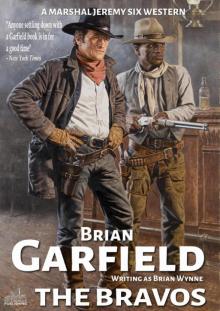 Marshal Jeremy Six #3
Marshal Jeremy Six #3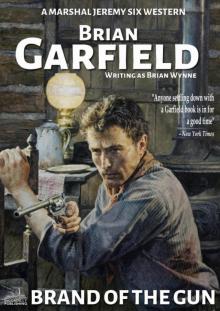 Marshal Jeremy Six #6
Marshal Jeremy Six #6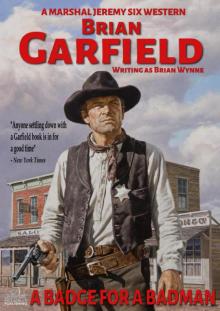 Marshal Jeremy Six #5
Marshal Jeremy Six #5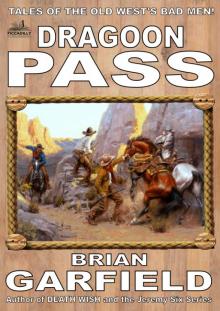 The Outlaws 2
The Outlaws 2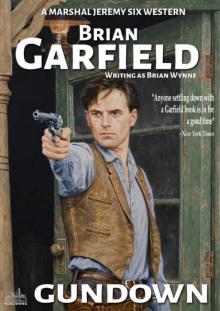 Marshal Jeremy Six #7
Marshal Jeremy Six #7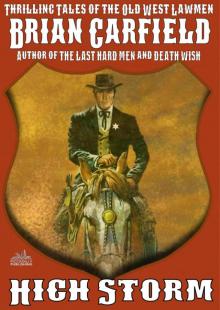 The Lawbringers 4
The Lawbringers 4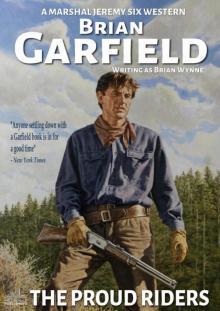 Marshal Jeremy Six #4 the Proud Riders
Marshal Jeremy Six #4 the Proud Riders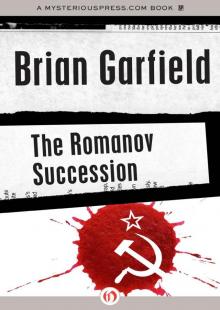 The Romanov succession
The Romanov succession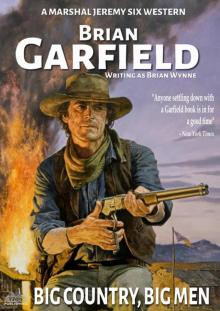 Marshal Jeremy Six #8
Marshal Jeremy Six #8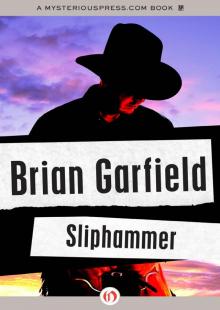 Sliphammer
Sliphammer Line of Succession
Line of Succession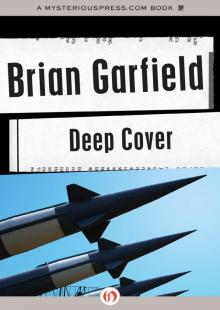 Deep Cover
Deep Cover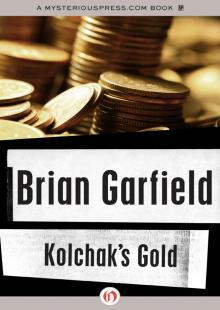 Kolchak's Gold
Kolchak's Gold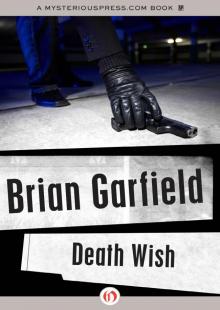 Death Wish
Death Wish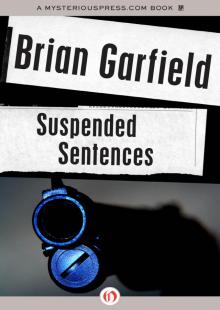 Suspended Sentences
Suspended Sentences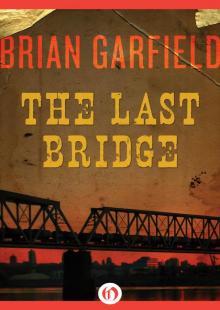 The Last Bridge
The Last Bridge Relentless
Relentless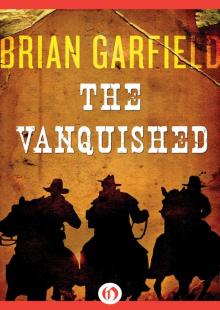 The Vanquished
The Vanquished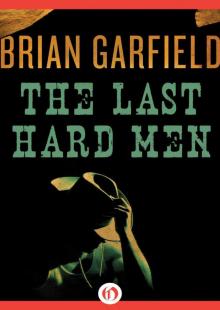 The Last Hard Men
The Last Hard Men Hit and The Marksman
Hit and The Marksman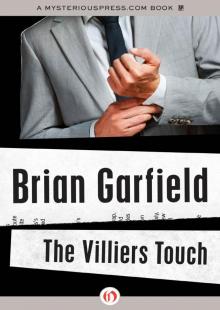 Villiers Touch
Villiers Touch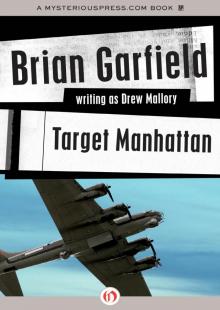 Target Manhattan
Target Manhattan Marchand Woman
Marchand Woman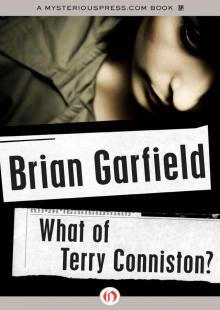 What of Terry Conniston?
What of Terry Conniston?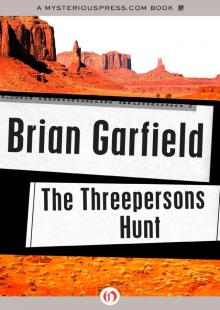 Threepersons Hunt
Threepersons Hunt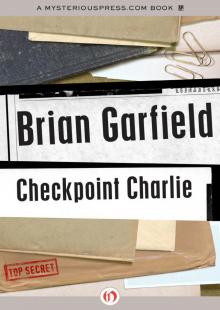 Checkpoint Charlie
Checkpoint Charlie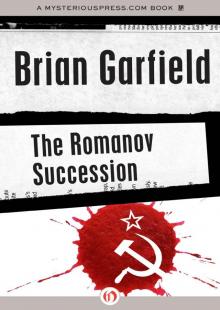 Romanov Succession
Romanov Succession Necessity
Necessity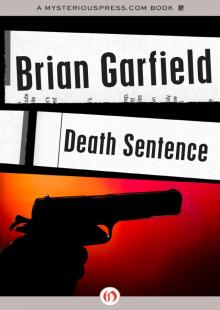 Death Sentence
Death Sentence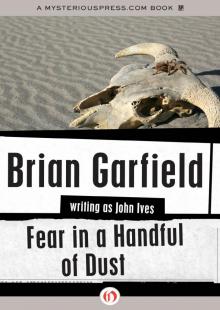 Fear in a Handful of Dust
Fear in a Handful of Dust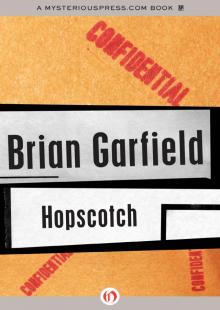 Hopscotch
Hopscotch